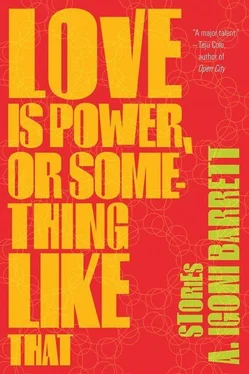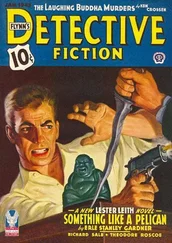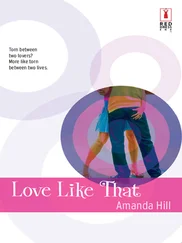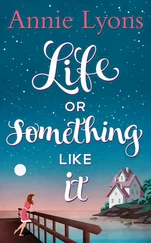Eghobamien Adrawus rolled onto his back. He glowered at the ceiling, chewing his lips, so immersed in the acid broth of his thoughts that he didn’t hear his cell phone until the call was lost. When it rang a second time he rolled off the bed and, following the sound, rummaged through his clothes on the floor. The caller was his colleague, Chukwuma. The cell phone clock read 17:44. He’d missed the call again.

Estella emerged from the bathroom to the sounds of Tales by Twilight, the six o’clock kiddy TV show her children followed daily with the single-mindedness of mosquitoes. Their addiction to television was beginning to bother her; she would have to talk with their father about it. As she walked past the recliner, she said: “Osamiro, have you ironed your clothes for school?”
Osamiro ignored her. It was Ododo who answered. “ Sh, Mummy.” He wagged his head in annoyance. “Aunty Alaroye is talking!”
Yes, she would speak with their father, she decided, turning the handle of the bedroom door. “Eghe,” she began, as the curtain fell into place behind her. But looking up to find her husband by the window, she caught her breath. Eghobamien Adrawus had put on his uniform. He was the picture of authority, the man in control; and he was staring at his open palm, his face scrunched up in fury. One of the buttons on his shirt was undone. When he looked up at her, she quivered, her hand rising as if to fend off a blow.
“Why you no sew my button?” he snarled at her. “You no see sey e don fall commot?”
She stammered. “I see am but, but—”
“But wetin?”
She searched so hard for the right answer that her head began to spin. But there was no right answer, only the truth. She had let her guard down. She had been diverted by his lovemaking, lulled by the mirage of normalcy. She had let herself lose sight of the apparition, the thing in black and battle-green that took over whenever he donned his uniform — that swaggered like it was drunk on authority.
“Sorry, Eghe.” She hung her head. “I think sey you go wear another shirt.”
Eghobamien Adrawus released his breath in a whoosh that beat Estella’s nerves like wind from a dodged collision. “Wetin you dey wait for?” he said. “You no go come sew am?” He watched as she rushed to the dresser and bustled about it, searching for her sewing kit. When she approached him, needle in hand, he unclenched his fist and held the button out to her. “Do quick o, the patrol motor go soon reach here.”
She dropped to her knees. As she raised her arm to hold the button in place, the fold of her wrapper loosened and the cloth fell to the floor. Naked, she began to sew, her fingers working like insect legs.
Eghobamien Adrawus tested the button for strength, then slipped it into its hole and smoothed the front of his shirt. “Where these people—” he said, but his words were interrupted by a horn blast. “They don come.” He moved to the corner to pick up his rucksack and headed for the door, the thump of his boots rattling the dresser. He stopped in the doorway and turned to Estella: “Till tomorrow.” He waited, as if he wanted to say something more, but then left without another word.
Estella listened for the children’s voices through the closed door. Her life would continue where it had left off: she would make the children do their chores; she would visit the neighbors, chat, laugh, exchange gossip, then come home to cook, clean, watch TV, and sleep. She felt once again the mistress of her house, her destiny.
The room darkened: the sun had dipped behind a cloud. The marshland smell of night wafted in through the open window, fluttering the curtains.
Estella rose to her feet, picked up her wrapper, and covered herself. Then she threw open the bedroom door so the knob smacked against the wall, and pushed aside the equatorially patterned curtain. The children’s heads whipped toward this explosion of sound, their eyes widening with fear at the look on their mother’s face.
“Don’t make me tell you again, Osamiro — turn off that TV!”
.2 .
With nightfall the five men in the cab of the police van grew silent — conversation, at this point, seemed like a dereliction of duty. The team had been assigned to patrol a section of the interstate route, but seeing as the night was too young to fritter away standing on the side of some deserted expressway, they had begun trawling the backstreets of the city, and spooled time with every detour and stop-off.
Constable Chukwuma, who was at the wheel, reached over and flicked on the car stereo: the blare of a saxophone filled the cab. Beside him, Inspector Habila let out a yawn. He took a pack of Rothmans from his breast pocket, shook a stick loose, placed it between his lips, and then leaned forward to kill the music.
“We near Havana Hotel,” Mfonobong said, his words punctuated by the krr-krr of his fingers raking his crotch. The men on either side of him shifted in their seats — the whole station suspected that he was slowly losing his life to an intractable venereal disease, but in the observance of good form nobody said anything about his piss-colored eyes or the sores that festered between his knuckles. At least, not to his face.
Glancing to his side, Chukwuma said, “Make I stop?” Inspector Habila raised his hands in a gesture of prayer and muttered, “Okay.” Then he added: “But make una no arrest anybody o, Madam Ruby done pay protection money.” A tongue of fire spurted from between his cupped palms and sputtered out in a cloud of cigarette smoke.
Light and music spilled from the doorway of the long, low-roofed hotel building. The figures bobbing and swaying about the fringes melted away as soon as the car appeared. Its back doors swung open and three policemen emerged. Mfonobong headed for the entrance with long strides. Otizara and Eghobamien Adrawus followed.
Several groups sat drinking in the foyer of the hotel, their laughter vying with the boom of the music. The red bulb that hung from the ceiling turned everything in the room a comic-book monochrome. When the policemen appeared in the doorway, everybody froze in midsentence, midaction, like figures in an enchanted scene.
The scrape of furniture broke the spell. Madam Ruby, her enormous hips hemmed in by the arms of her chair, was struggling to rise.
Mfonobong leered at her. “Do small-small o, Madam Ruby, make you no for break the chair.”
Madam Ruby jerked her hips free. She took a moment to rearrange her skirt. “Hope no problem, officers?” she asked.
“Give me Gulder,” Otizara answered. He dropped into a seat, unstrapped his gun, and placed it on the table. The barrel pointed at his chest.
“You nko?” Madam Ruby addressed the question to Eghobamien Adrawus, but it was Mfonobong who replied, “Adrawus no dey drink for duty.” He grinned at her. “But you know wetin I want.” He leaned forward and hooked an arm round her waist. His finger slipped beneath the band of her skirt. “ Kai! But Madam Ruby, your waist nah one-in-town.” Madam Ruby, with the grace of a bullfighter, spun away.
“Sit down,” she said. “Make I serve your friend.”
Mfonobong watched as she crossed to the freezer and stooped over it — her hindquarters formed the shape of a heart. He licked his lips, dropped his hand to his crotch. By the time she returned with a bottle of beer in one hand and a frosted mug in the other, he had moved to block her path to the table. She squeezed past, but as she leaned forward to open the bottle, he caught her wrist. “You know wetin I want,” he muttered, his breath fluttering her long, burgundy braids. “Make we go inside.”
Читать дальше


![Сьюзан Кейн - Quiet [The Power of Introverts in a World That Can't Stop Talking]](/books/33084/syuzan-kejn-quiet-the-power-of-introverts-in-a-wo-thumb.webp)










